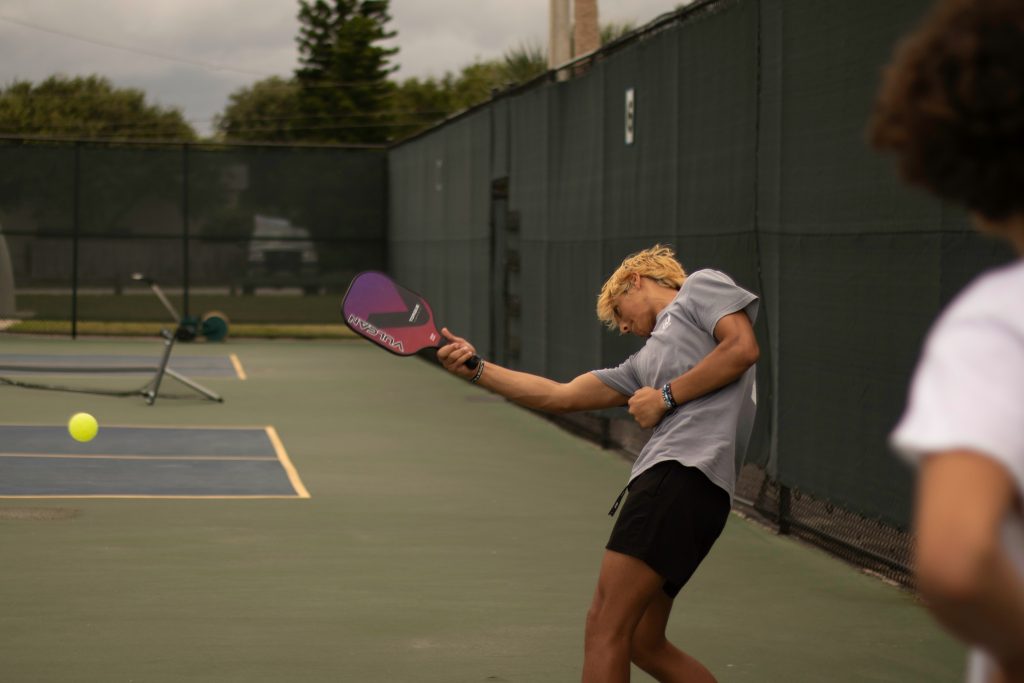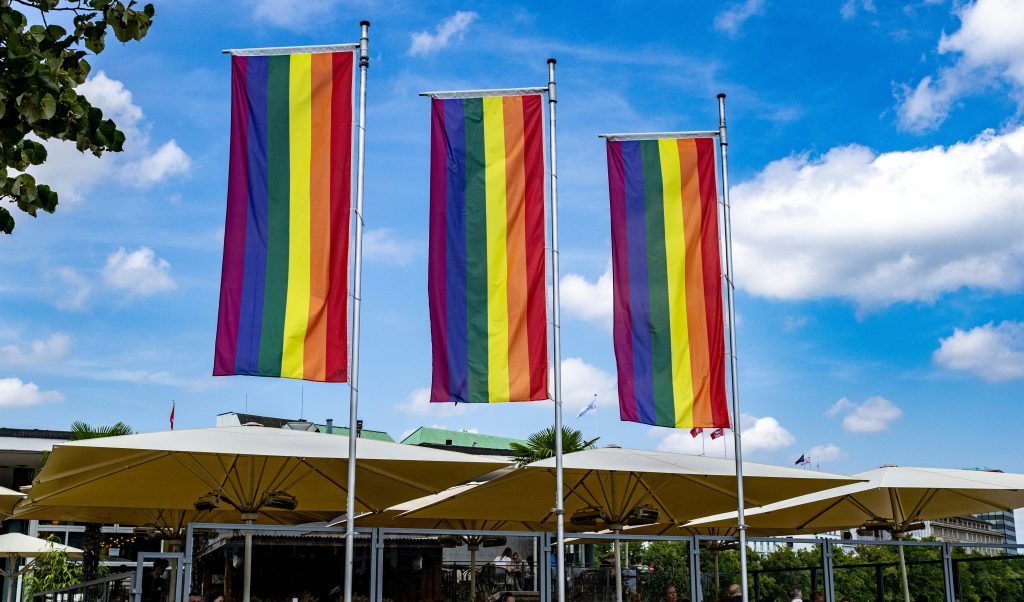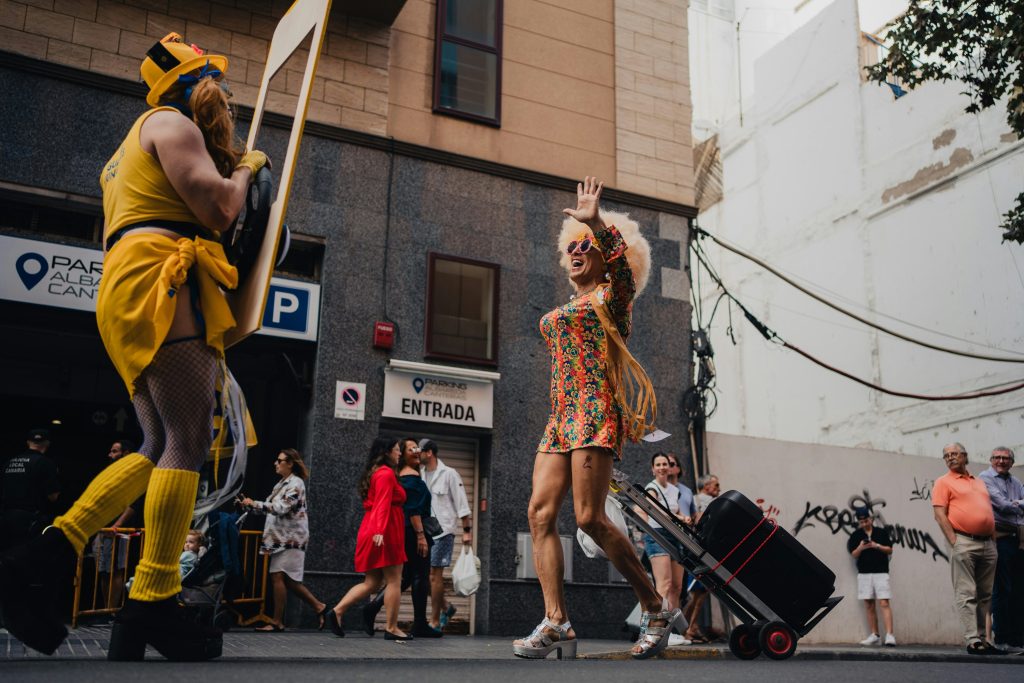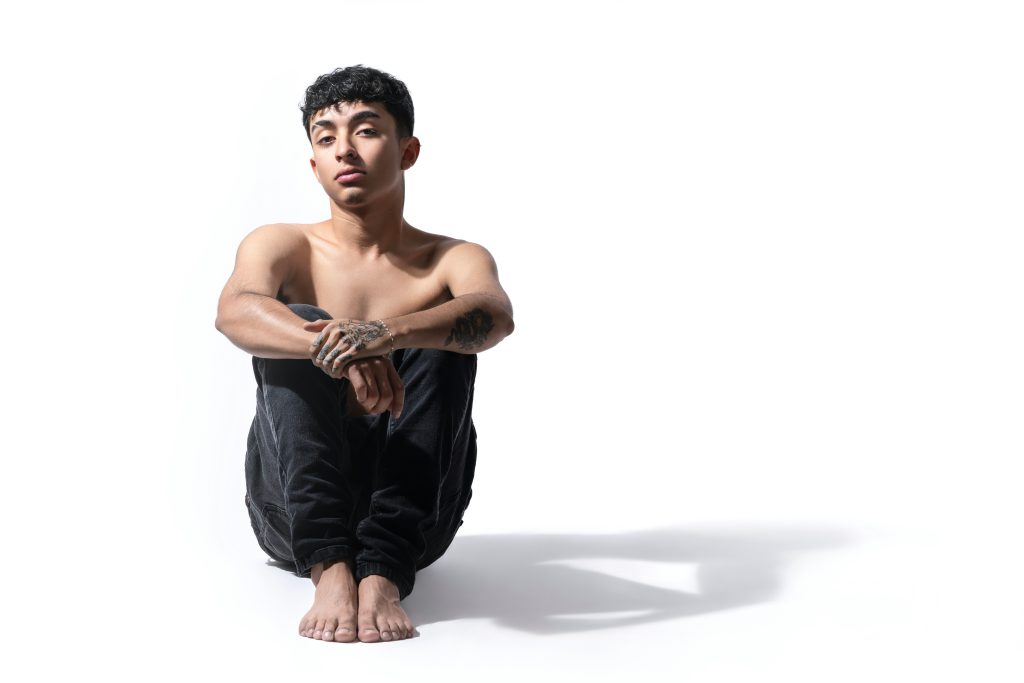Breaking the Silence: A New Conversation on Neurodivergence
In a heartfelt discussion that resonates with many families, Minnesota Governor Tim Walz and his wife, Gwen, shed light on their son’s challenges with a nonverbal learning disorder and attention-deficit/hyperactivity disorder (ADHD). Their openness about their son’s neurodivergence marks a significant step in fostering understanding and acceptance of different cognitive experiences.
Neurodiversity is a term that emphasizes the natural variations in human cognition and behavior, advocating for the recognition and appreciation of these differences rather than viewing them through a pathological lens. The Walz family’s story is emblematic of the everyday realities faced by many families navigating the complexities of neurodivergent conditions.
The couple’s willingness to share their journey with the public serves as a powerful reminder that neurodivergence is not an isolated experience but rather a shared reality for millions of individuals and their families. Their candidness is not just about raising awareness but also about encouraging others to speak out and seek support. It highlights the importance of community and the need for systemic changes to accommodate diverse learning styles and needs in educational and social settings.
As discussions around mental health and neurodiversity gain momentum, it is crucial to focus on creating inclusive environments that celebrate cognitive differences. Schools, workplaces, and communities must adapt to provide support that caters to the unique needs of neurodivergent individuals. This includes implementing tailored educational strategies, workplace accommodations, and community resources that promote understanding and inclusivity.
In recent years, there has been a growing recognition of the need to address the stigma surrounding neurodivergent conditions. By sharing their experiences, the Walz family is contributing to a broader movement that seeks to destigmatize these differences and encourage empathy and support among peers. Their story serves as a catalyst for conversations that can lead to greater awareness and action.
Moreover, the narrative surrounding neurodivergence often lacks representation in mainstream media. By bringing their story to light, the Walz family is not only advocating for their son but also for countless others who may feel marginalized or misunderstood. It is a call to action for society to embrace neurodiversity and recognize the value that diverse perspectives bring to our communities.
As we continue to engage in conversations about mental health and neurodivergence, it is essential to foster an environment where individuals feel safe and supported to share their experiences. The Walz family’s story is a beacon of hope for many families facing similar challenges, reminding them that they are not alone in their journey.
The intersection of neurodiversity with education, mental health, and community support is an area ripe for exploration and advocacy. As we look toward the future, it is vital to continue amplifying the voices of neurodivergent individuals and their families, ensuring that their experiences lead to tangible changes in policy and practice.
Together, we can create a society that not only acknowledges but also celebrates the rich tapestry of human cognition, paving the way for a more inclusive and understanding world.
Tags: family support, Inclusion, Mental Health, Neurodivergent, Neurodiversity
A Historic Milestone: Nikki Hiltz Shatters Barriers at the Olympics
In an inspiring turn of events at the Stade de France, Nikki Hiltz has made history by becoming the first openly transgender and nonbinary athlete to reach an individual final at the Olympic Games. Competing in the women’s 1500-meter semifinals, Hiltz showcased remarkable talent and determination, finishing third in their heat and securing a spot in the finals scheduled for Saturday. This moment is not just a personal victory for Hiltz, but a significant milestone for the LGBTQ+ community in sports.
At 29 years old, Hiltz has already made waves in athletics, but their journey to the Olympics has been unique. Coming out as nonbinary and transgender in 2021, Hiltz has embraced their identity both on and off the track, advocating for inclusivity in athletics. This Olympic appearance marks their first, and the pressure was palpable as they stepped onto the track, knowing the weight of history resting on their shoulders.
The semifinals were a display of athletic prowess, with Hiltz executing a well-planned race strategy that allowed them to perform at their best. “I had a plan in place, and I stuck to it,” Hiltz remarked after the race. Their journey to this point has been filled with challenges, but Hiltz’s resilience and dedication to the sport have shone through.
As Hiltz prepares for the final race, their achievement is already a source of inspiration for many. The significance of their presence in the Olympics transcends sports; it represents progress in breaking down barriers and creating a more inclusive environment for all athletes, regardless of gender identity. Hiltz’s success is a testament to the power of perseverance and the importance of representation in athletics.
With the finals approaching, Hiltz’s story continues to garner attention, sparking conversations about diversity in sports. As discussions around gender identity and inclusion grow, Nikki Hiltz stands at the forefront, paving the way for future generations of athletes. The impact of their journey is profound, encouraging others to embrace their true selves and strive for greatness, regardless of societal expectations.
As we look forward to the final race on Saturday, the anticipation is electric. Hiltz’s participation in the Olympics is not just about medals; it’s about making history and inspiring change. The message is clear: every athlete deserves a chance to compete and be celebrated for who they are.
The significance of Nikki Hiltz’s achievement extends beyond the track, inviting a broader dialogue on the importance of diversity and inclusion in sports. Their journey reflects a shift towards acceptance and understanding in a world that often challenges those who dare to be different. As supporters rally behind Hiltz, the hope is that their story will inspire others in the LGBTQ+ community to pursue their dreams, no matter the obstacles in their path.
As the world watches, Nikki Hiltz is set to not only compete for a place on the podium but also to leave an indelible mark on the history of the Olympic Games, proving that with courage and determination, anything is possible.
Tags: History, Inclusion, LGBTQ+, Nikki Hiltz, Olympics2024, TransgenderAthlete
Raven Saunders Shines Bright at the 2024 Olympics: A True Icon of Individuality
In a stunning display of athleticism and individuality, Raven Saunders took to the field for the shot put semifinals at the 2024 Olympics, captivating audiences with their vibrant style and unwavering spirit. The 28-year-old Olympic veteran donned a full-faced black mask paired with striking bronze sunglasses, complemented by their eye-catching neon green hair. This distinctive look not only made a bold fashion statement but also underscored Saunders’ commitment to authenticity and self-expression.
Saunders, who previously made headlines as a silver medalist at the Tokyo Games, has consistently defied norms and expectations in the world of athletics. Their journey to the Paris Olympics has been marked by resilience and determination, traits that have not only propelled them to compete at the highest level but have also made them a beacon of hope and inspiration for many.
On Thursday, as they competed in the shot put semifinals, it was clear that Saunders was not just there to participate. They were there to make a statement, and their performance reflected that ambition. With each throw, Saunders demonstrated their incredible skill and dedication, securing a place in the final scheduled for August 9.
The shot put event has long been dominated by fierce competition, but Saunders has carved out a unique niche for themselves, blending athletic prowess with a strong message of individuality. Their presence at the Olympics goes beyond medals and records; it speaks to the importance of representation and self-acceptance in sports.
During the competition, commentators highlighted Saunders’ impact on and off the field. Acknowledging their identity as non-binary, they emphasized the significance of inclusivity in athletics. This acknowledgment resonates deeply in a world that is increasingly recognizing and celebrating diversity.
As the Olympics draw nearer, the anticipation surrounding Saunders’ performance continues to grow. Fans and supporters are not only cheering for their athletic success but are also inspired by their courage to embrace who they are. In a world where many athletes feel pressured to conform to traditional standards, Saunders stands out as a symbol of authenticity and empowerment.
The upcoming shot put final promises to be an electrifying event, with Saunders poised to challenge the limits of their abilities while staying true to their identity. Regardless of the outcome, their journey in Paris will undoubtedly leave a lasting impression on the Olympics and the broader sports community.
As we celebrate the 2024 Olympics, it’s crucial to recognize athletes like Raven Saunders who inspire change and promote acceptance through their actions. Their story is a reminder that sports are not just about competition; they are also a platform for expression, individuality, and the celebration of diversity. With the world watching, Saunders is set to make waves not just in the shot put but also in the hearts of many who see in them a reflection of their own struggles and triumphs.
Tags: Inclusion, Non-Binary, Olympics, Raven Saunders, Shot Put
The Legacy of Billy Bean: A Trailblazer for LGBTQ+ Representation in Sports
In a significant loss for the sports community, Billy Bean, a pioneering figure in Major League Baseball, has passed away at the age of 60 after a battle with leukemia. Bean made headlines in 1999 when he became the second former MLB player to come out as gay, a courageous move that broke barriers in a sport long perceived as traditional and conservative. His journey was not only about personal acceptance but also about paving the way for future generations of LGBTQ+ athletes.
From achieving his lifelong dream of playing in the major leagues at 23, Bean’s career took an unexpected turn when he decided to step away from the game at 31 to embrace his identity fully. This decision resonated with many, illustrating the often difficult intersection of personal truth and professional ambition. After retiring, he became a vocal advocate for LGBTQ+ rights in sports, dedicating his life to promoting diversity, equity, and inclusion within the league. His efforts culminated in his appointment as the senior vice president for Diversity, Equity, and Inclusion (DEI) in MLB, where he tirelessly worked to foster an environment where athletes could feel safe to express their identities without fear of discrimination or backlash.
Billy Bean’s contributions extended beyond his own experiences; he significantly influenced the culture of baseball, encouraging openness and acceptance. His legacy serves as a reminder of the importance of representation in all fields, especially in sports, where societal norms have often stifled authenticity. As the league continues to evolve, Bean’s impact will be felt for years to come, inspiring future athletes to embrace their true selves.
In remembrance of his life, the baseball community and LGBTQ+ advocates are coming together to honor his memory, celebrating not just his achievements on the field but also his dedication to creating a more inclusive environment for all players. Bean’s story is one of resilience, courage, and the power of being true to oneself. His passing is a profound loss, but his legacy will undoubtedly continue to inspire change within the sports world and beyond. As we reflect on his contributions, it is essential to recognize the ongoing challenges faced by LGBTQ+ individuals in athletics and to commit to fostering a culture of acceptance and support for all athletes, regardless of their sexual orientation.
As we mourn the loss of this iconic figure, let us also celebrate the strides made in the realm of sports due to his advocacy. The journey towards equality and representation in sports continues, and Billy Bean will forever be remembered as a trailblazer who opened doors for many who will follow in his footsteps. His courage has laid the groundwork for a more inclusive future in sports, and it is our responsibility to continue his fight for acceptance and representation in all areas of life.
Tags: Baseball, Billy Bean death, Diversity, Inclusion, Legacy, LGBTQ+
Major League Baseball Mourns the Loss of Trailblazer Billy Bean
In a profound loss for the world of sports, Billy Bean, a pioneering figure in Major League Baseball (MLB), has passed away at the age of 60. Known for his courageous decision to come out as gay in 1999, Bean’s legacy extends beyond his playing days as he became an influential advocate for diversity, equity, and inclusion within the league.
Bean’s journey is a testament to the changing landscape of professional sports. His coming out made him the second former MLB player to publicly identify as gay, an act of bravery that inspired countless individuals within and beyond the sports community. Until his untimely death, he served as the Senior Vice President of Diversity, Equity, and Inclusion for MLB, a role he embraced with passion and commitment.
His hiring by former commissioner Bud Selig marked a significant turning point for the league, as Bean was tasked with addressing the pervasive culture of homophobia that had long lingered in clubhouses. His work was not just about representation but about creating a safe and welcoming environment for all players, regardless of their sexual orientation.
The impact of Bean’s contributions cannot be understated. He played a pivotal role in implementing initiatives that promoted inclusivity and acceptance in a sport that has historically struggled with these issues. Through his efforts, MLB has taken substantial strides towards ensuring that every player can feel confident and supported, both on and off the field.
Bean’s passing has elicited heartfelt tributes from across the baseball community. Many have expressed their condolences and acknowledged the profound influence he had on the lives of players and fans alike. His legacy as a champion for equality will be remembered as a significant chapter in the ongoing fight for acceptance in sports.
As Major League Baseball reflects on Bean’s remarkable life, it is essential to recognize the work that remains. The league’s commitment to diversity and inclusion must continue to evolve, embracing the values that Bean fought tirelessly for. His story serves as a reminder of the importance of representation and the need for ongoing dialogue about LGBTQIA+ issues in sports.
In the wake of this loss, the MLB community is called upon to honor Bean’s memory by continuing to advocate for an inclusive environment for all athletes. The strides made during his tenure should not be seen as an endpoint but rather a foundation for further progress. As the league moves forward, it is crucial to carry the torch that Bean lit, ensuring that the culture of baseball reflects the diverse society it serves.
In conclusion, Billy Bean’s legacy is a powerful reminder of the impact one individual can have on an entire community. His courage, advocacy, and unwavering commitment to equality have paved the way for future generations of athletes. As we mourn his passing, let us also celebrate his life and the enduring influence he will have on the realm of sports and beyond.
Tags: Billy Bean, Billy Bean MLB, Diversity, Inclusion, LGBTQIA+, MLB
Remembering Billy Bean: A Trailblazer for Diversity and Inclusion in Baseball
In a poignant moment for Major League Baseball (MLB), the league reflects on the impactful life of Billy Bean, who passed away at the age of 60. Bean’s remarkable journey began on the baseball diamond, where he made his mark as a player, but it was his courageous decision to come out as gay in 1999 that truly set him apart as a pioneer for diversity and inclusion in sports. As the second former MLB player to publicly identify as gay, Bean broke barriers in an era when such openness was rare and often met with hostility.
Born in Santa Ana, California, Bean’s love for baseball propelled him into a professional career that spanned the late 1980s and early 1990s. After his playing days, he transitioned to a role in MLB’s front office, where he became the Senior Vice President for Diversity, Equity, and Inclusion. In this capacity, Bean championed initiatives that aimed to foster a more inclusive environment within the sport, advocating for the acceptance of players from all backgrounds and identities.
Bean’s legacy is not only marked by his contributions to the game but also by his unwavering commitment to social justice. His work in promoting inclusion within baseball has inspired countless individuals, encouraging them to embrace their authentic selves. Through his leadership, he has opened doors for future generations of athletes, making it clear that diversity is not just a goal but a necessity for the growth and success of the sport.
As news of his passing reverberated through the baseball community, tributes poured in from players, executives, and fans alike, all acknowledging the profound impact Bean had on the game. His role as a mentor to many, particularly in the LGBTQ+ community, cannot be overstated. By sharing his own story, Bean provided hope and courage to those who may have felt isolated or marginalized within the world of sports.
The MLB community, including the Loyola Marymount University Athletics, expressed deep sorrow over the loss of Bean, honoring his contributions both on and off the field. His work not only changed the landscape of baseball but also set a precedent for other sports leagues to follow suit in their pursuit of equity and inclusion.
In remembering Billy Bean, we celebrate a life dedicated to breaking down barriers and advocating for a more inclusive future in sports. His legacy will undoubtedly influence the next generation of athletes, reminding them that their voices matter and that they have the power to instigate change. As baseball continues to evolve, Bean’s contributions will be a guiding light in the ongoing fight for equality and acceptance within the sport.
Billy Bean leaves behind a world that is a little bit more accepting, a little bit more inclusive, and, undoubtedly, a lot more aware of the importance of diversity. His story is a testament to the power of authenticity and the profound impact one individual can have on an entire community. As we reflect on his life and legacy, we are reminded that the journey towards inclusion is ongoing, and it is one that we must all commit to continuing. In this endeavor, we honor not only Billy Bean but also the countless individuals who strive for acceptance and equality in every facet of life.
Tags: Billy Bean, Diversity, Inclusion, LGBTQ+ Advocacy, social justice
Breaking New Ground: Blind Comedian Chris McCausland Joins Strictly Come Dancing
In an exciting development for the upcoming season of Strictly Come Dancing, comedian Chris McCausland has been announced as the first contestant, making history as the first blind participant in the beloved BBC dance competition. McCausland, who lost his sight in his twenties, is set to bring his unique flair to the dance floor when the show returns in autumn 2024. His inclusion marks a significant milestone not only for the show but for representation within the entertainment industry.
Joining McCausland is JB Gill, a former member of the popular band JLS, adding another layer of excitement to this season’s lineup. Together, they are poised to captivate audiences with their diverse backgrounds and talents. McCausland’s participation comes on the heels of the show’s recent efforts to embrace inclusivity, following the success of its first deaf contestant last season.
Despite its popularity, Strictly Come Dancing has faced scrutiny in recent months over allegations of a toxic culture and bullying during training. The producers are under pressure to rectify the situation and ensure a supportive environment for all contestants. McCausland’s involvement could not come at a more crucial time, as his story of resilience and determination may help shift the narrative surrounding the competition.
In a recent appearance on a morning talk show, McCausland expressed his enthusiasm for joining the cast, stating, “I can’t wait to hit the dance floor and show everyone what I can do!” His infectious spirit and humor are expected to resonate with viewers, making him a potential fan favorite this season.
The announcement of McCausland and Gill as the first contestants is a clear indication that the show’s producers are committed to diversifying their lineup and broadening the appeal of the series. As they prepare for the new season, viewers can look forward to witnessing not just dance performances, but also personal journeys of growth and triumph.
With the addition of McCausland, who is known for his sharp wit and engaging performances, Strictly Come Dancing aims to challenge perceptions about disability in the performing arts. His participation could pave the way for more inclusive practices within the industry, inspiring aspiring dancers with disabilities to pursue their dreams.
As the dance competition gears up for its next season, fans are eager to see how McCausland will adapt to the challenges of the dance floor. With a mix of excitement and anticipation, the stage is set for a season that promises to be both entertaining and enlightening. McCausland’s journey will not only showcase his talents but also highlight the importance of inclusivity in reality television.
As the show evolves, it remains to be seen how the contestants and the production team will address the ongoing concerns about the show’s culture. However, with McCausland’s participation, there is hope that the narrative can shift towards positivity and support, fostering an environment where all participants can thrive. The countdown to autumn 2024 has begun, and fans are ready to cheer on McCausland as he dances his way into history.
Tags: Blindness, Chris McCausland, Dance, Diversity, Inclusion, JB Gill, Reality TV
Artistic Swimming at Paris 2024: A New Era Begins with Male Athletes
As the world gears up for the much-anticipated 2024 Paris Olympics, artistic swimming is set to make a significant leap forward, welcoming male athletes into the competition for the first time. This groundbreaking development not only adds a fresh dynamic to the sport, but it also signals a shift in how artistic swimming is perceived globally. Historically known as synchronized swimming, this captivating sport has evolved dramatically since its Olympic debut at the 1984 Summer Games in Los Angeles.
The journey to Paris 2024 has been a remarkable one for many athletes. Take, for instance, the inspiring story of Shortman and Thorpe, who have transformed their performances since finishing 14th at the Tokyo 2020 Olympics. With relentless dedication and rigorous training, they are now setting their sights on securing a podium finish in Paris. This evolution reflects not just personal growth, but also the changing landscape of artistic swimming as it embraces inclusivity and diversity.
Artistic swimming is a unique blend of acrobatics, choreography, and music, demanding peak physical conditioning, grace, and creativity from its competitors. As Daniella Ramirez highlights, the skills required for elite artistic swimmers extend beyond mere athleticism. The intense training regimens and the artistic expression involved are pivotal for athletes aiming for Olympic gold. With the introduction of male competitors, teams are now challenged to innovate their routines, incorporating elements that showcase both strength and artistry.
The inclusion of men in artistic swimming is a significant milestone for the sport. While some may wonder about the absence of male competitors in the team events at Paris 2024, the potential for future participation remains bright. Organizations are working diligently to promote and encourage male athletes to join the ranks, ensuring that the sport continues to evolve alongside societal changes.
As the artistic swimming community prepares for the upcoming games, there is a palpable excitement in the air. Teams are not only focused on perfecting their routines but also on redefining the narratives surrounding artistic swimming. The sport is no longer confined to traditional gender roles; it is transforming into a more inclusive space that celebrates the talents of all athletes, regardless of gender.
With the Paris 2024 Olympics just around the corner, fans can look forward to witnessing breathtaking performances that blur the lines between sport and artistry. Each routine will tell a story, a reflection of the athletes’ hard work, perseverance, and the evolving nature of artistic swimming. As the competition approaches, anticipation builds for what promises to be a historic event that could reshape the future of the sport for generations to come.
Tags: artistic swimming, Artistic swimming Olympics, Diversity, Inclusion, Male Athletes, Olympics 2024







